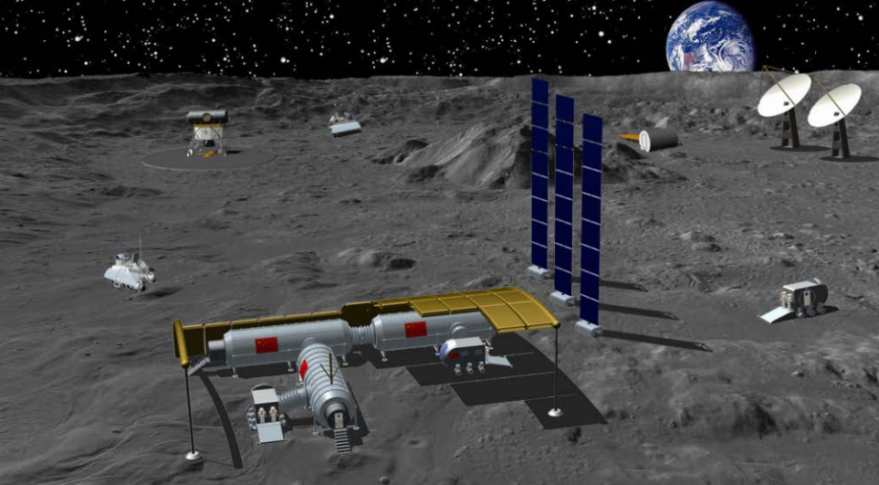15.03.2021

China has completed feasibility studies of the fourth phase of its lunar exploration program and is expected to build an international lunar research station on the moon's south pole in the future, said Wu Weiren, the chief designer of China's lunar exploration program.
In an interview with China Space News, Wu said that three missions are planned for the fourth phase of the lunar exploration program. The program includes the retrieval of lunar samples from the south pole by Chang'e-6, a detailed survey of the moon's south pole resources by Chang'e-7, and the testing of key technologies in preparation for the construction of the lunar research station by Chang'e-8.
Wu explained that there may be a polar day and night on the moon's south pole, like Earth's north and south poles. The moon's rotation period is equal to its revolution period, both of which are 28 days. Therefore, there may be more than 180 consecutive days of light on the moon's south pole, which would be highly convenient for astronauts carrying out scientific research.
On Tuesday, China and Russia signed a memorandum of understanding (MOU) to build an international scientific research station on the moon.
Wu said that within the MOU framework, China and Russia would use their experience in space science, research and development, and their space equipment and technology. The two countries will jointly formulate a roadmap for the construction of an international lunar research station, carrying out close cooperation in the planning, demonstration, design, development, implementation and operation of the project, Wu noted.
"If the lunar research station project can be successfully implemented, China will not be far away from achieving manned landing on the moon," said Wu. He added that Chinese scientists and engineers are study ing how to land on the moon.
According to Wu, China will consider landing on the south pole of the moon in the future, which is more complex but the environmental conditions are better. Once the landing is successful, construction of the lunar research station can be carried out gradually.
It will be a long-term lunar stay for Chinese astronauts, not short-term, said Wu.
He noted that in order to achieve a manned landing on the moon, it is necessary to ensure that the probe and astronauts can land safely and accurately.
In the 14th Five-Year Plan period (2021-2025), China will continue to promote the development of heavy launch vehicles and achieve breakthroughs in rocket body sizes and engine thrust to support deep space exploration, said Wu. Enditem
